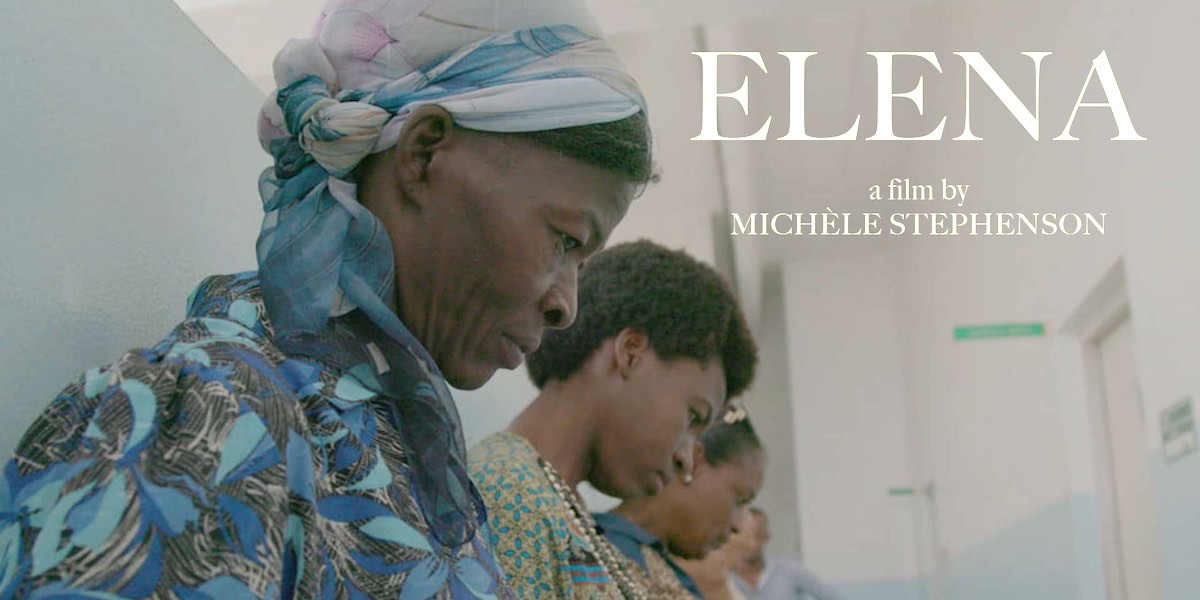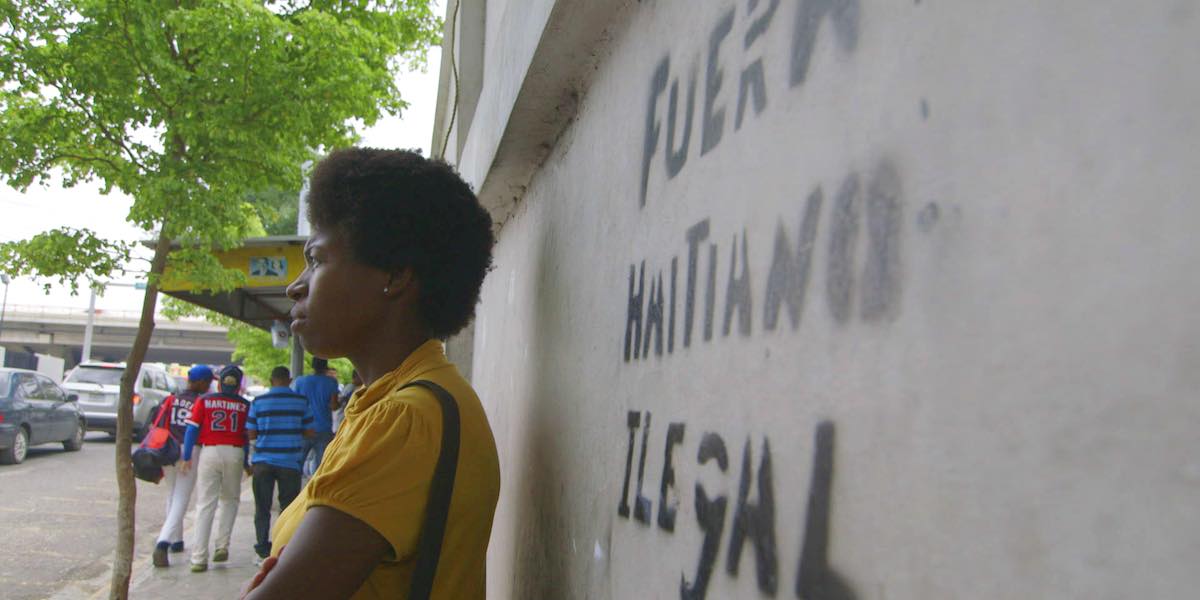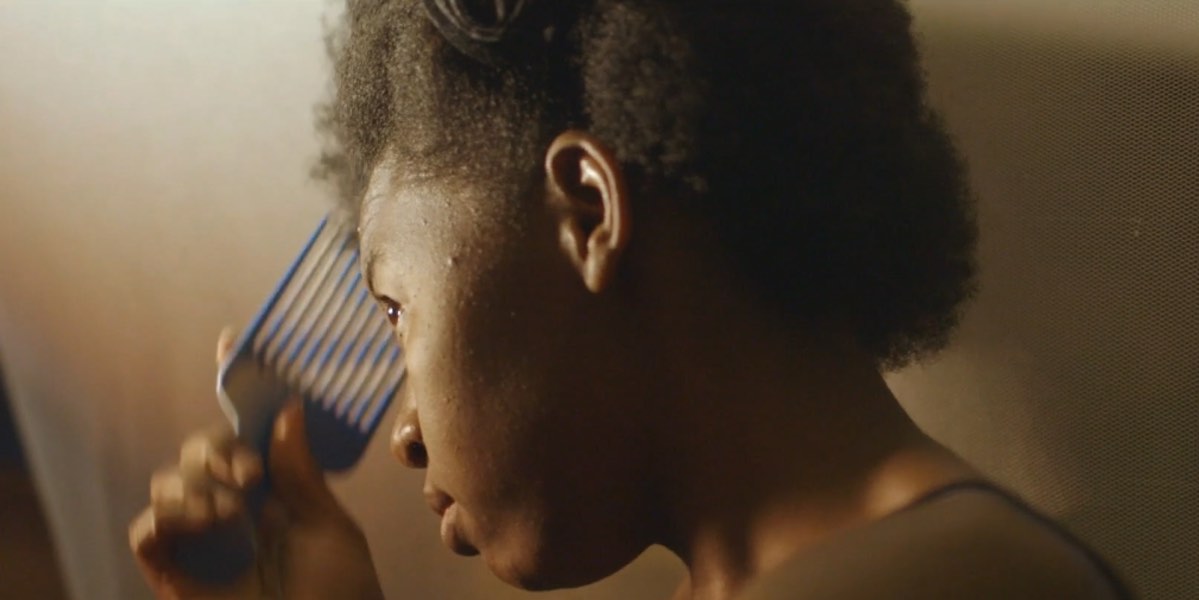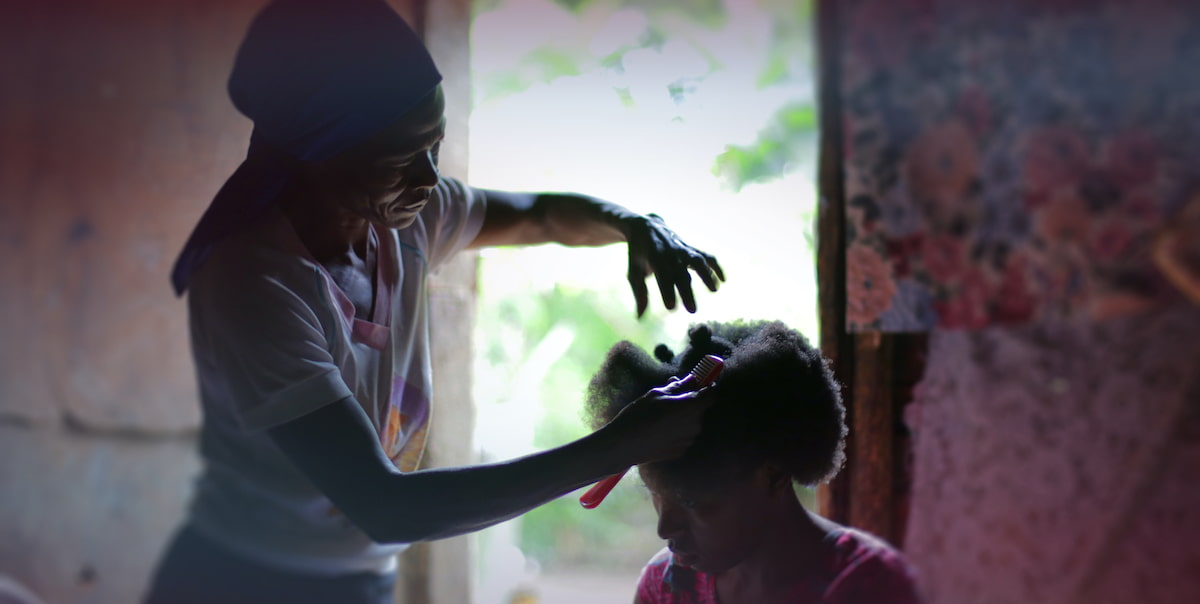Elena
Michèle Stephenson / United States, Dominican Republic / 2018 / 30 min




BlackStar Film Festival
Jury Award Best Short DocumentaryPhiladelphia Latino Film Festival
LOLA Award Honorable MentionNew Orleans International Film Festival
DOCNYC
Trinidad + Tobago Film Festival
Double Exposure Film Festival
Pricing
Related Films
 Between Fire and Water(Entre Fuego y Agua)Viviana Gómez Echeverry, Anton WenzelCamilo is a young black man adopted by an indigenous couple in rural Colombia. He is the only black person in his community and has always felt ...
Between Fire and Water(Entre Fuego y Agua)Viviana Gómez Echeverry, Anton WenzelCamilo is a young black man adopted by an indigenous couple in rural Colombia. He is the only black person in his community and has always felt ... Perro BombaJuan CáceresSteevens is a young Haitian immigrant living a challenging, but somewhat stable life in Santiago de Chile: he has a construction job, a home, ...
Perro BombaJuan CáceresSteevens is a young Haitian immigrant living a challenging, but somewhat stable life in Santiago de Chile: he has a construction job, a home, ... Bad Hair(Pelo Malo)Mariana RondónA nine-year-old boy’s preening obsession with straightening his hair elicits a tidal wave of homophobic panic in his hard-working mother, in this ...
Bad Hair(Pelo Malo)Mariana RondónA nine-year-old boy’s preening obsession with straightening his hair elicits a tidal wave of homophobic panic in his hard-working mother, in this ... La Soledad(La Soledad)Jorge Thielen-Armand Handyman José lives with his family in La Soledad, a dilapidated villa located in what was once among Caracas’ most affluent neighborhoods. After ...
La Soledad(La Soledad)Jorge Thielen-Armand Handyman José lives with his family in La Soledad, a dilapidated villa located in what was once among Caracas’ most affluent neighborhoods. After ... The Forgotten Boys of Brazil(Menino 23 - Infâncas Perdidas no Brasil)Belisario FrancaThe Forgotten Boys of Brazil follows the research of historian Sidney Aguilar, beginning with the discovery of bricks marked with Nazi swastikas on a ...
The Forgotten Boys of Brazil(Menino 23 - Infâncas Perdidas no Brasil)Belisario FrancaThe Forgotten Boys of Brazil follows the research of historian Sidney Aguilar, beginning with the discovery of bricks marked with Nazi swastikas on a ...Synopsis
Spanish and Haitian Creole with English subtitles
USE CODE “ELENA” AT CHECKOUT FOR A SPECIAL 40% DISCOUNT FOR MID-LENGTH FILMS.
In 1937, tens of thousands of Haitians and Dominicans of Haitian descent were exterminated by the Dominican army, on the basis of anti-black racism. Fast-forward to 2013, the Dominican Republic’s Supreme Court stripped the citizenship of anyone with Haitian parents, retroactive to 1929, rendering more than 200,000 people stateless.
Elena has lost her citizenship due to this ruling, and her family stands to lose their rightful access to legal residency in the Dominican Republic if they don’t manage to get their documents on time. Negotiating a mountain of opaque bureaucratic processes and a racist, hostile society, Elena becomes the face of the struggle to stay in a country built on the labor of her father and forefathers.
Director Michèle Stephenson’s documentary follows Elena and her family through their tribulations and small joys, as they fight to remain in the country they’ve called home for generations.
Related Subjects
About the Director

Available for Q&As, Masterclasses, and workshops upon request, in English or Spanish.
Book a Screen+Talk
With her spouse, Joe Brewster, Stephenson co-founded the Rada Film Group, producing award-winning films and media projects from their base in Brooklyn. Their landmark documentary American Promise (2013), which followed their son and his friend through 13 years at a Manhattan prep school, received the Special Jury Prize at Sundance and aired nationally on POV. The film inspired the co-authored companion book Promises Kept: Raising Black Boys to Succeed in School and in Life, which addresses the educational challenges facing Black youth.
Stephenson’s bold approach to filmmaking incorporates experimental and immersive techniques that challenge conventional documentary forms. Her film Elena (2018) is a hybrid work that explores generational trauma and Afro-Caribbean identity through a deeply personal lens. Her 2020 film Stateless was critically acclaimed for its examination of anti-Black policies in the Dominican Republic, and in 2021, she co-directed The Changing Same, a VR trilogy exploring cycles of racial terror in America through magical realism. The project won the Grand Jury Prize at Tribeca and was nominated for an Emmy for Outstanding Interactive Media.
In 2023, she co-directed Going to Mars: The Nikki Giovanni Project, which won the Grand Jury Prize at Sundance and was shortlisted for the Oscars. That same year, she co-directed Black Girls Play: The Story of Hand Games, a documentary exploring Black girlhood through the cultural legacy of hand games, which won multiple awards, including the Edward R. Murrow Award.
A member of the Academy of Motion Picture Arts and Sciences, Stephenson has received a Guggenheim Fellowship, Creative Capital Award, the Anonymous Was A Woman Award, and the Chicken & Egg Pictures Filmmaker Breakthrough Award. She continues to break new ground in nonfiction cinema and immersive storytelling, expanding how Black stories are told through film, virtual reality, and hybrid media.
Press
“Stephenson shows how the act of legitimizing one’s legal right to participate in society through systems such as education, democracy, and employment can literally pull a person out of obscurity by giving them a legally recognized identity.” – Rachael Dreyer, EMRO
“There is an instant emotional bond with Elena, which grows stronger as we watch the young social worker navigate a racist society seeking simple justice and equity. In this way, Elena makes a fantastic introduction to the Reconocido movement and the material reality of Haitians and Dominicans of Haitian descent living in the Dominican Republic.” – J. Zimmerman, Video Librarian
“Elena exposes the immense mundanity of racist governance—and the exhaustion produced by navigating it—where exclusion is managed, more than anything, by bureaucracy and its gatekeepers. In doing so, it powerfully engages with the difficult question of how coloniality and its expression in anti-Black racism can be understood and challenged when they are reproduced largely in the absence of white people.” – Larissa Andrea Johnson, Film Quarterly
“An intimate and engrossing portrait of how the specters of historical traumas haunt Dominicans of Haitian heritage, who are relegated to the fringes of social acceptance.” – Haitian Times
“Elena is a proud celebration of Haitian heritage in the Dominican Republic.” – Alonso Aguilar, Hyperallergic
“Elena spotlights one woman’s fight against racism.” – The New York Carib News
Notes on the Film
“As a child, growing up in a Haitian and Latinx household and diaspora communities in North America, I continued to overhear stories about the history of my birthplace relating to race, color, class, colonialism, and human rights. Those observations formed the basis of how I made sense of the world that surrounded me, especially as those notions collided with the racism, segregation and discrimination that we faced in our adopted countries. Those experiences fuelled my passion to dig deeper into the consequences of our deeply painful common history of slavery and colonialism and how we continue to internalize such self-hatred.
Elena, in some ways, is a culmination of years of working through storytelling approaches that allowed me to land back home and use a creative way to unearth and express that childhood pain.
As a hyphenated Black Latina, I felt compelled to express how deeply embedded the racial caste system is in our Latinx communities and how identity and citizenship are so closely connected to anti-Blackness—and yet its discussion either escapes or is superficially misconstrued by mainstream media.
Elena highlights universal themes of access to citizenship, migration, and systemic racism. In the US, we are witnessing the chipping away at immigrants’ and citizens’ rights. We are facing a global crisis of white supremacist manipulation of migrants’ rights, birthright citizenship, and human dignity for black and brown people.
My objective is to connect the film to a network of committed partners in the Caribbean region, Latin America, the US, and internationally, to utilize the film as a platform for their work on protecting the rights of migrants and citizens, and to deepen people’s understanding of the intersection between anti-Black racism, migration, and citizenship rights.”
– Michèle Stephenson, Director/Producer